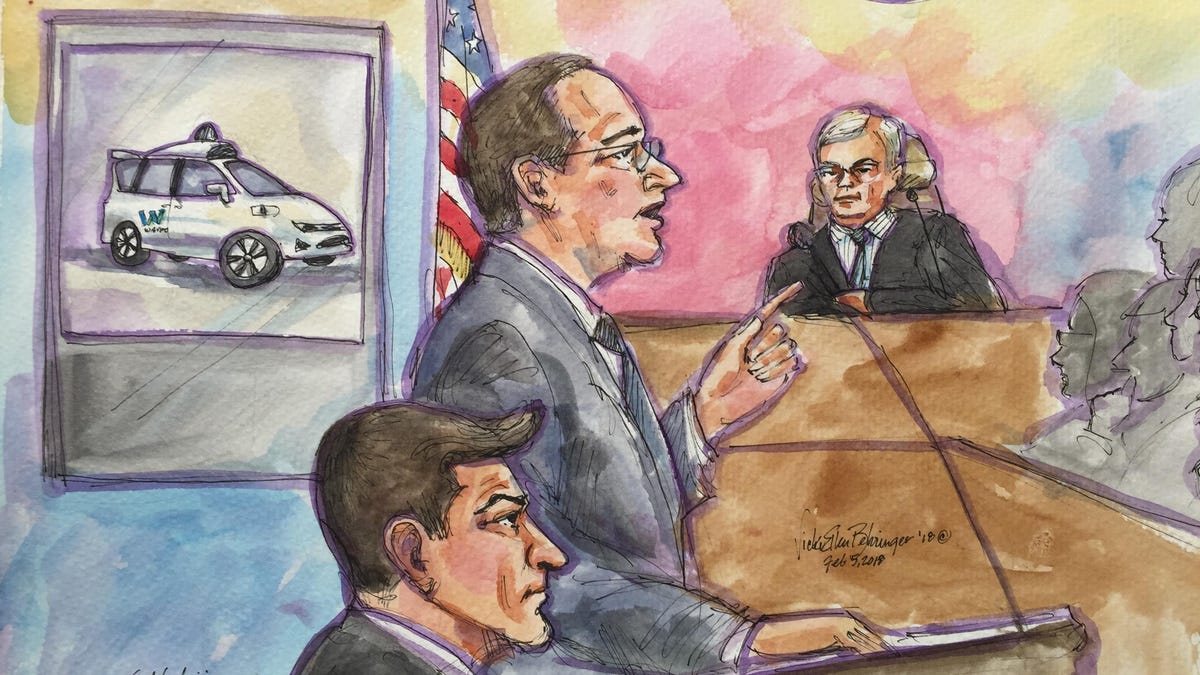Uber and Waymo trial gets ubertechnical, but no smoking gun
Day four of the trial over self-driving cars and trade secrets focuses on lots of technical nitty-gritty about hard drives, lasers and other technologies.

Waymo lawyer Charles Voehoeven addresses the jury in the Waymo v. Uber trial over allegedly stolen trade secrets involving self-driving cars.
The trial between Waymo and Uber over trade secrets related to self-driving cars took a turn for the technical on Thursday, day four of the high-stakes Silicon Valley court case.
Lawyers on both sides had the seven witnesses discuss the ins and outs of SVN servers, fiber lasers and Drobo hard drives.
At the end of the day, though, neither side proved definitively if Uber did -- or didn't -- use any of the 14,000 confidential files Waymo alleges were stolen. Waymo is the self-driving spinoff of Google's parent company, Alphabet.
"We were looking for potentially confidential information that was from Google," said Eric Friedberg, co-founder of data forensics firm Stroz Friedberg, who investigated laptops and devices for Uber. "I only saw one text message" and it wasn't confidential.
The case centers on Google's former star engineer, Anthony Levandowski, who allegedly pilfered about 14,000 files from the company before quitting in January 2016 to form his own self-driving truck startup, Otto. Uber acquired Otto in August 2016 and made Levandowski head of its autonomous vehicle program.
If the jury decides in Waymo's favor, Uber may be forced to halt its self-driving car project and hand over nearly $2 billion in damages to Waymo.
To win this case, Waymo must prove that Uber got hold of those files and also used them to develop its own self-driving car program.
CNET Magazine: Check out a sample of the stories in CNET's newsstand edition.
Life, disrupted: In Europe, millions of refugees are still searching for a safe place to settle. Tech should be part of the solution. But is it?

